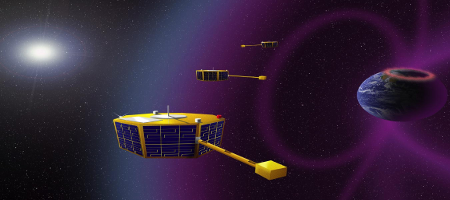Space Technology
Space Technology refers to entering, and recovering objects or life forms from space.
Key to Success
To be successful in Space Technology you should have/ develop:
- High imagination
- Curiosity
- Enthusiasm
- Greater Concentration
- Inquisitive Mind
Scope and opportunities
Space Technologists job profile is just not limited to mapping a distant planet or discovering something new and unique about the solar system but also has diversified career options like ISRO, Defense Research and Development Organization (DRDO), Hindustan Aeronautics Limited (HAL), National Aeronautical Laboratories (NAL), and aerospace industry. Also in universities or academic committees, publish papers, guide research students, write proposals, and referee papers for publication. Astronomers and astrophysicists can employ in government or national observatories, space research agencies, science museums, and planetariums. Work in designing and manufacturing telescopes, writing software, and performing several tasks at ground-based observatories and space laboratories, technical writing as well. Other areas include simulation centers, space tourism operators, and spacecraft manufacturing firms, military operations, R&D centers, spacecraft software developing firms, and repair and maintenance workshops.
Lifestyle & Social Status
- It is an indoor job
- Have to work in irregular hours
- Research and Development
- Well known Personalities in Space Technology - Abdul Kalam, Vasant Gowaikar, Vikram Sarabhai
Job Profile
Scientist or Research officer
- Research officers are expected to discuss and agree to new project requirements, project management of particular projects, provide information on new policy and explain their complex findings in a way that is easy to understand.
- Research officers must also regularly work with external research contractors so they may at times, required to give presentations of findings.
Skill set
- Problem Solving and analytical Skill.
- Excellent oral and written Communication Skill
- Strong decision-making skills
- Good observation and a mind to learn new things are the basic things needed for astronomers
Work Value
- Persistency
- Hard work
- Teamwork
Current Job Scenario
Technologists are paid with good remuneration depending upon the academic qualification, institute from which the degree is completed, and the nature of work. Budding space scientists can earn around Rs. 200,000 and Rs. 250,000 PA. After gaining experience and knowledge, there is no bar limit of remuneration for the professionals.
Top Recruiters
DRDO
HAL
NAL
Course Synopsis
| Course Options | M.sc or M.tech |
| Academic Eligibility | B.sc. or B.Tech in space technology |
| Fees | Rs. 40K per annum |
| Expenditure in Metro and Tier-1 | Rs. 2lakhs to Rs. 2.5lakhs |
| Expenditure in Tier-2 | Rs. 1.75lakhs to Rs. 2lakhs |
| Duration | 2 Years |
| Mode | Regular |
| Approved | |
| Affiliation | IIST, IIT |
| Entrance Exam | Selection Process |
| a) Joint Entrance Screening Test
b) GATE or UGC CSIR (NET |
|
| Education Loan | |
| Scholarships |
Career Prospect
- Maintenance of aircraft or missiles
- Aircraft designer
- Aviation engineer
- defense
Entrance Exam
For BE / B.Tech – JEE Mains / JEE Advanced
For B.Sc Physics – Kindly check with institute or University for the same, some of the entrance exams are below:
- IISc- Indian Institute of Science
- IISER- Indian Institute of Science Education and Research
- NISER- National Institute of Science Education and Research
- Visva Bharati- A university founded by Rabindranath Tagore
- BHU- Banaras Hindu University. Varanasi
- OUAT – Orissa University of Agriculture and Technology
- GB Pant University of Agriculture & Technology – Pantnagar
Success Stories

